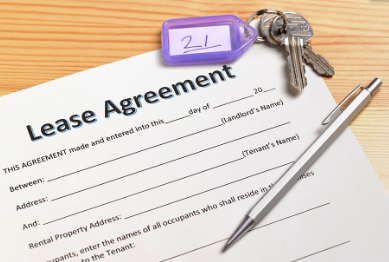
Are you a landlord in New Jersey? You need to know about lease agreements in this state.
New Jersey has specific laws and regulations that you must follow, ensuring fair treatment of tenants.
This article will give you essential information on your residential lease agreement New Jersey.
From required disclosures and housing protections to rent and fees, tenant screening, entry and eviction notices, and other important laws and facts, we will cover it all.
Gain valuable insights into the intricacies of your New Jersey lease agreement.
Required Disclosures and Fair Housing Protections
You need to make sure you comply with the required disclosures and fair housing protections when entering into lease agreements in New Jersey.
The New Jersey residential lease agreement mandates certain disclosures to protect both tenants and landlords. These include the lead-based paint disclosure, security deposit receipt, truth in renting act, flood zone disclosure, and window guards disclosure.
Additionally, fair housing protections are in place to prevent discrimination based on race, color, national origin, religion, and sex. It’s crucial to adhere to these laws to ensure a fair and equitable renting process.
Rent and Fees
To ensure compliance with New Jersey lease agreements, it’s important to understand the guidelines regarding rent and fees.
In New Jersey, there are no specific regulations regarding application fees or late fee limits. However, it’s essential to be aware of rent control laws, as they may apply in certain municipalities.
Additionally, there are no requirements for a grace period minimum. When it comes to security deposits, landlords must follow the state laws, which state that the security deposit can’t exceed one and a half months’ rent.
It’s crucial to understand these rules and adhere to them to avoid any legal issues or disputes with tenants. By familiarizing yourself with the rent and fees guidelines, you can ensure a smooth and compliant leasing process.
Tenant Screening and Criminal Histories
The guidelines for tenant screening and criminal histories in New Jersey lease agreements include consideration of credit reports and eviction notices.
When screening potential tenants, it’s important to review their credit reports to assess their financial responsibility and ability to pay rent on time.
Additionally, landlords should also consider any eviction notices in the applicant’s history, as this could indicate a potential risk of non-payment or lease violations.
However, it’s crucial to use criminal background checks fairly and in compliance with fair housing laws.
Landlords should be aware of protected classes under these laws and shouldn’t discriminate based on criminal histories alone.
Instead, it’s recommended to use criminal background checks as part of a holistic evaluation of an applicant’s suitability as a tenant.
Entry and Eviction Notices
When it comes to entry and eviction notices in New Jersey lease agreements, it’s important to understand the specific requirements and guidelines that landlords must follow.
In New Jersey, there’s no specific advanced notice requirement for entry into a rental property. However, landlords must obtain permission from the tenant or a court order in order to enter the property. There are no time-of-day restrictions for entry, meaning landlords can enter at any time as long as they’ve obtained the necessary permission or court order. It’s important to note that emergency entry without notice isn’t governed by laws.
When it comes to eviction notices, landlords must follow the proper process and provide notices for various reasons such as rent default, lease violation, disorderly conduct, and illegal activity.
Other Laws and Facts About New Jersey
As a landlord in New Jersey, you should be aware of the various other laws and facts that pertain to lease agreements in the state.
It’s important to note that the average rent in New Jersey can vary depending on the location. For example, the median rent rate in Newark is a useful benchmark to consider.
Additionally, tenants in Hudson County are afforded additional protections under the law. It’s also crucial to familiarize yourself with the Tenant Protection Act of 1992 and its extension of protections for tenants.
Conclusion
So, whether you’re an experienced landlord or just starting out, understanding the key aspects of lease agreements in New Jersey is crucial.
From required disclosures and fair housing protections to rent and fees, tenant screening, entry and eviction notices, and other important laws and facts, this article has covered it all.
By adhering to the legal requirements and obligations, you can avoid potential issues and ensure a smooth and efficient leasing process in New Jersey.








